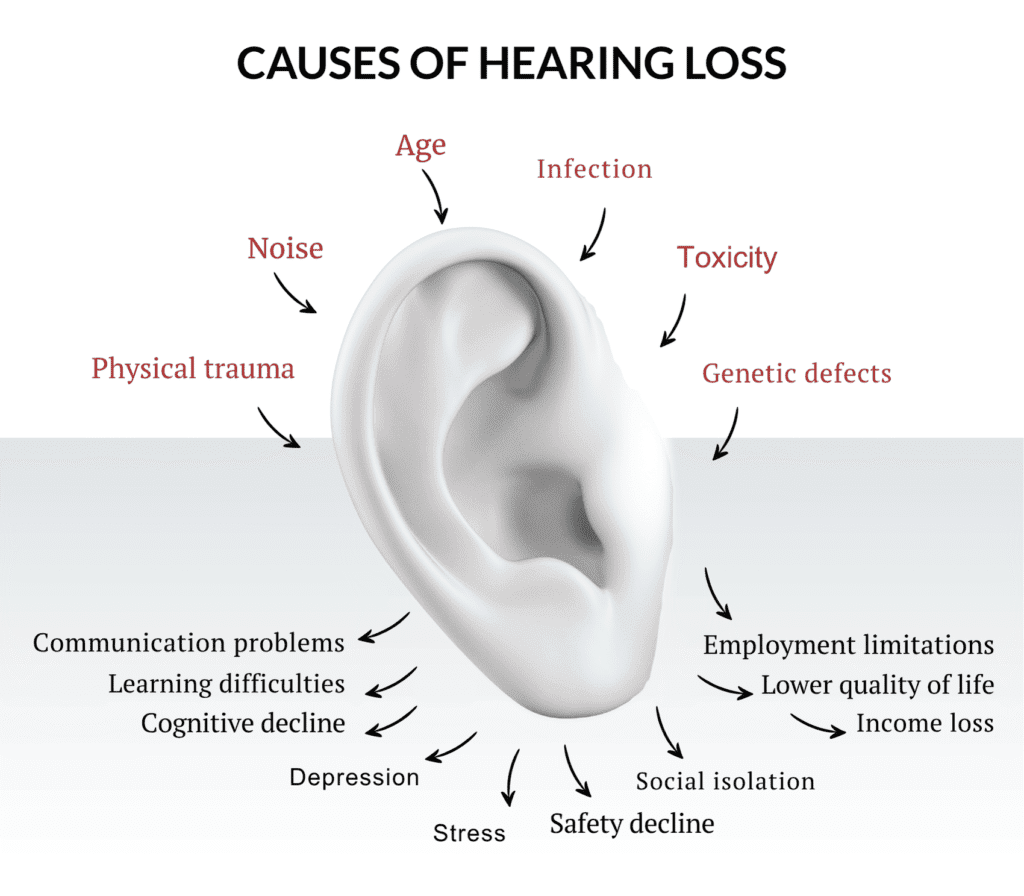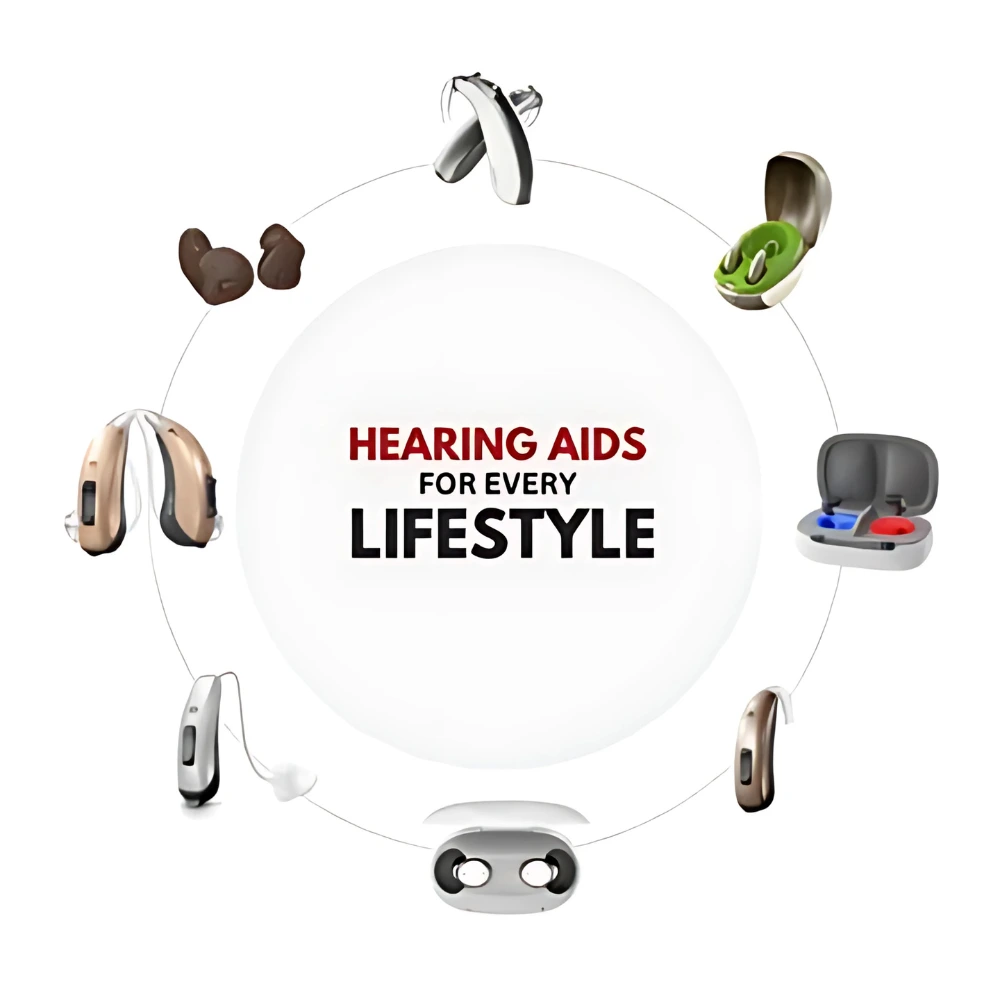Home » Hearing Loss » Causes Of Hearing Loss
What Causes Hearing Loss?

Top Causes of Hearing Loss in Adults
- Aging (Presbycusis): Among adults, one of the most common causes of impaired hearing is age-related hearing loss. It gradually affects both ears, and in most cases, it is irreversible.
- Loud Music and/or Traffic (a Noise Exposure): Constant exposure to noisy places, like concerts, construction work, or rush traffic, can destroy the auditory nerve and lead to permanent deafness.
- Earwax Build-Up: Too much wax may interfere with the ability to hear by blocking the passage of sound to the ear. Normal hearing could be restored by proper cleaning or wax removal.
- Head Trauma: The cochlea or auditory nerve may be damaged during injury to the head or skull and cause hearing impairment. This cause is more prevalent in falls or accidents.
- Ototoxic Medications: Some of the drugs, such as chemotherapy drugs, high-dose aspirins, or antibiotics, may cause damage to the inner ear structures, resulting in sensorineural hearing loss.
Causes of Hearing Impairment in Children
Environmental & Lifestyle Factors
- Prolonged Headphone Use: Using headphones for extended periods at high volume can lead to sensorineural hearing loss. It damages the inner ear’s hair cells and may be irreversible.
- Industrial/Traffic Noise: Constant exposure to traffic and workplace noise can gradually cause auditory nerve damage, especially without proper ear protection.
- Pollution and Hearing Loss: Air and noise pollution are emerging as silent culprits of auditory damage. Increased urban noise levels can lead to cochlear dysfunction and reduced auditory signal transmission.
When to Worry: Signs That It May Be Due to an Underlying Cause
- Persistent Ear Pain or Discharge: Could indicate chronic infections damaging the eardrum.
- Sudden Hearing Loss: A medical emergency often linked to viral infections or nerve damage.
- Vertigo with Hearing Loss: May signal inner ear disorders like Meniere’s disease.
FAQs
The most common causes include age-related degeneration (presbycusis), long-term noise exposure, and use of ototoxic drugs. These factors lead to both conductive and sensorineural hearing loss, depending on the part of the ear affected.
Yes, environmental noise pollution from traffic and industrial sources can cause long-term auditory nerve damage. In fact, WHO recognizes urban noise as a public health risk contributing to hearing impairment.
Congenital issues, untreated middle ear infections, delayed vaccinations, and exposure to loud noises are some of the leading causes of deafness in children. Early diagnosis ensures better speech and language development.
In some cases, yes. Ototoxic medications like certain chemotherapy drugs or antibiotics can permanently damage the inner ear’s hair cells. Always consult an audiologist if hearing changes during treatment.
Inherited syndromes or gene mutations can lead to congenital hearing loss. These conditions can affect the development of the cochlea or auditory nerve, often requiring hearing aids or cochlear implants for management.
Yes, if temporary causes like infections or blockages aren’t treated in time, they may result in permanent hearing damage. Monitoring early symptoms and getting regular hearing tests is essential.
Request Consultation


